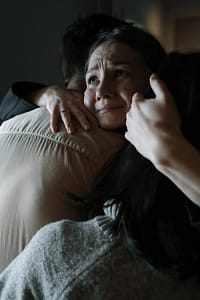“Quit being a girl.”
“You are crying like a girl.”
“What! Are you going to be a girl and cry?” and other statements that range from being a little playful and pushy to some that are explicit; highlight society’s gendered beliefs about tears, emotions, and expressions from childhood into adulthood.
The result is a society where women can express their emotions in tears while society conditions men to withhold and “be a man.” Death and grief are not an exception.
As much as society claim to erase gender stereotypes, the stereotypes still strongly exist in how we expect men to mourn and grieve.
The additional support that women receive from expressing their emotions facilitates their grief work juxtaposes to men suppressing their feelings.
In my years serving and attending funerals, people would rally around the women overcome by grief; they offer love, comfort, and support; however, when a man is bereaved, they pat his back and say, “be strong” “you are a man.”
The result is that men feel the physical, spiritual, emotional, social, and psychological impact of grief but are not sure what to do with it. They then opt to suppress it to satisfy the gender conditioning.
Martin*, my teacher, and I were spending the afternoon together when I turned to him at the end of class to inquire if he was heading to his mother’s living facility (referencing a Tuesday tradition of Martin having dinner with his children and mother). He responded, “she died on Friday.” Martin had not mentioned this, yet we spent Friday together. His approach is not an isolated case; men tend to return to work as soon as possible, believing that routine will bring normalcy. Unbeknownst to them, the grief does not go away; it exists in the subconscious and can later manifest itself as addictions, rage, drugs, sex, gambling, and other life destabilizing behaviors.
In another testimony, we have James*, who at a young age tragically lost his father. At the funeral, he was told, “you are the man of the house now” and “you have to be strong for your mother.” Simple words, but highly impactful to a child. James confesses he struggles to process grief as an adult, thinking back to those words given to him as a child.
Men should be free to Honor their grief, whether in public or private. There is no right or wrong way to grieve, men can cry or not, but the lack of physical responses to the death should not also mean a lack of grief work, reflections, support, and counseling. Men can support their grief by discussing their experiences and completing any unfinished business with the deceased.
A few ways men can honor their grief
- Write letters to the deceased (complete unfinished business)
- Journal
- Sponsor a charity event in honor of the deceased
- Seek and commit to counseling
- Rest
- Trust themselves that they are free to grieve as they please, including crying.
- Speak publicly of their grief and accept support
When supporting the bereaved, treat men as you would women. Death does not have a gender.
*Names changed to protect privacy.



